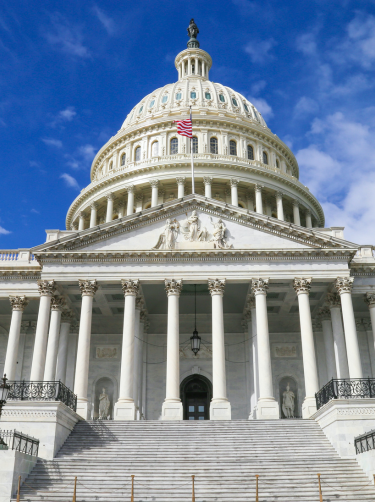Home / U.S. Climate Alliance Co-Chairs, Govs. Inslee and Mills, Celebrate First Anniversary of the Inflation Reduction Act

WASHINGTON, D.C. – Marking the one-year anniversary of the signing of the Inflation Reduction Act (IRA), which makes the largest investment in climate action in our nation’s history, the U.S. Climate Alliance’s co-chairs, Washington Governor Jay Inslee and Maine Governor Janet Mills, today issued the following statements:
“Since we launched the Alliance in 2017, the urgency of climate action has only grown,” said Alliance co-chair and founding member Governor Inslee. “The Inflation Reduction Act is the most important federal action yet for super-charging state efforts to go further, faster in transitioning to clean energy. States are using these investments to create jobs and invest in communities. The IRA has helped put the United States back in the game in the global fight against climate change.”
“The Inflation Reduction Act is a big, bold investment in a brighter future for America – one where our communities are healthier, costs are lower, air is cleaner, energy is greener, jobs are better, and the economy is stronger,” said Alliance co-chair Governor Mills. “Governors are uniquely positioned to deliver on this once-in-a-generation opportunity and we’re moving full speed ahead.”
The U.S. Climate Alliance is a bipartisan coalition of 25 governors securing America’s net-zero future by advancing state-led, high-impact climate action. Its members represent approximately 60 percent of the U.S. economy and 55 percent of the U.S. population.
Already, the Alliance’s members are leveraging historic IRA resources to tackle the climate crisis. This spring, every Alliance state and territory submitted their notice of intent to participate in the U.S. EPA’s Climate Pollution Reduction Grants (CPRG) Planning Grants Program, capturing more than $70 million collectively to develop and update their climate and clean energy plans. More recently, every eligible Alliance member last month submitted their notice of intent to apply for the Greenhouse Gas Reduction Fund (GGRF) Solar for All competition, which will provide billions of dollars to increase access to affordable, resilient, and clean solar energy for low-income households.
Since President Biden took office, the Alliance has forged a robust state-federal partnership to advance and accelerate solutions across government. This partnership has led to historic climate action over the past two and a half years, including passage of IRA, restoration of states’ authority to set stringent clean car standards, the phase-down of harmful hydrofluorocarbons, new collaborative initiatives to advance states’ procurement and use of low-carbon construction materials and decarbonize buildings, and much more.
Launched in 2017 by the governors of Washington, New York, and California to help fill the void left by the U.S. federal government’s withdrawal from the Paris Agreement, the Alliance has grown to include 24 governors from across the U.S. representing approximately 60 percent of the U.S. economy and 55 percent of the U.S. population. Governors in the Alliance have pledged to collectively reduce net greenhouse gas emissions by at least 26-28 percent by 2025, 50-52 percent by 2030, and 61-66 percent by 2035, all below 2005 levels, and collectively achieve overall net-zero greenhouse gas emissions as soon as practicable, and no later than 2050.
The Alliance’s states and territories continue to advance innovative and impactful climate solutions to grow the economy, create jobs, and protect public health, and have a long record of action and results. In fact, the latest data shows that as of 2023, the Alliance has reduced its collective net greenhouse gas emissions by 24 percent below 2005 levels, while increasing collective GDP by 34 percent, and is on track to meet its near-term climate goal of reducing collective greenhouse gas emissions 26 percent below 2005 levels by 2025.
###